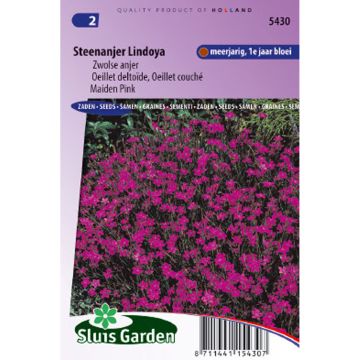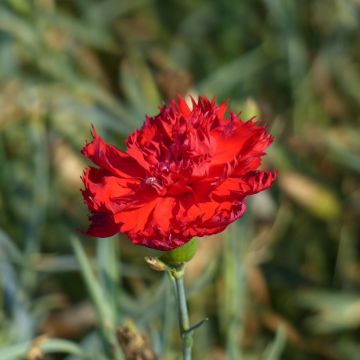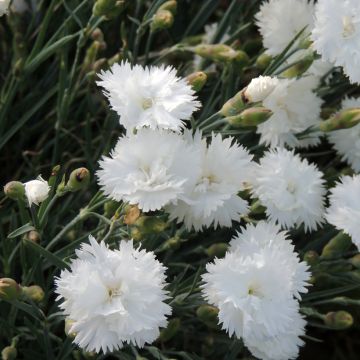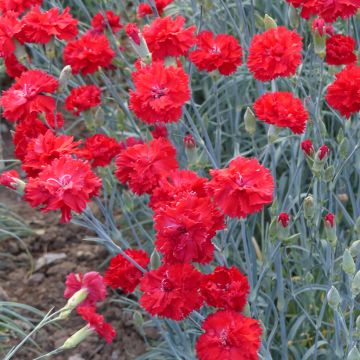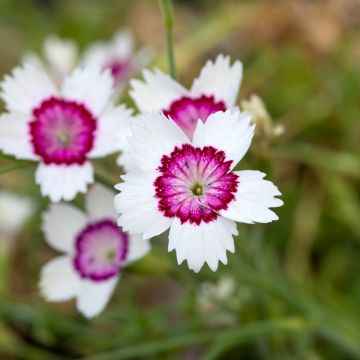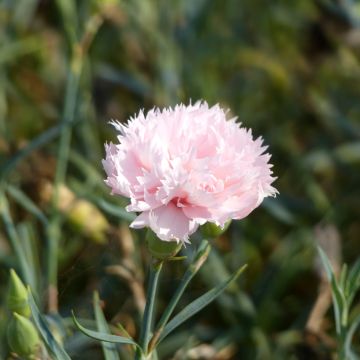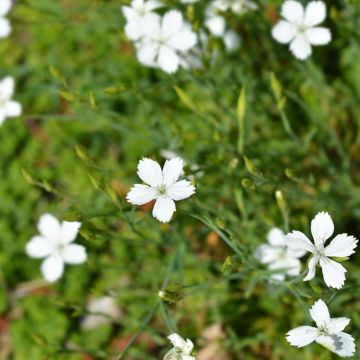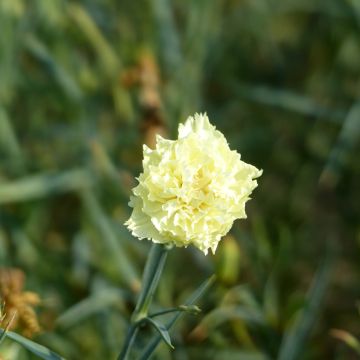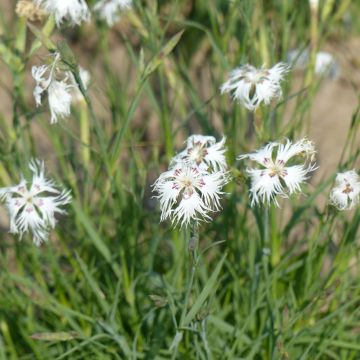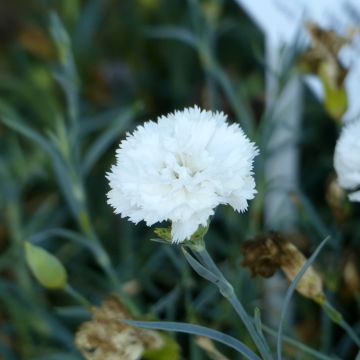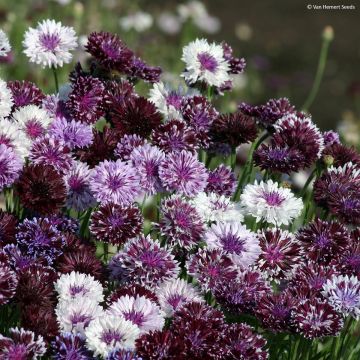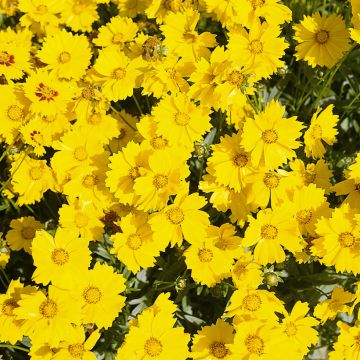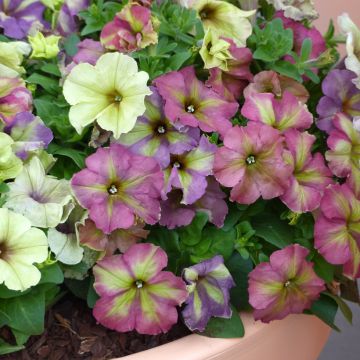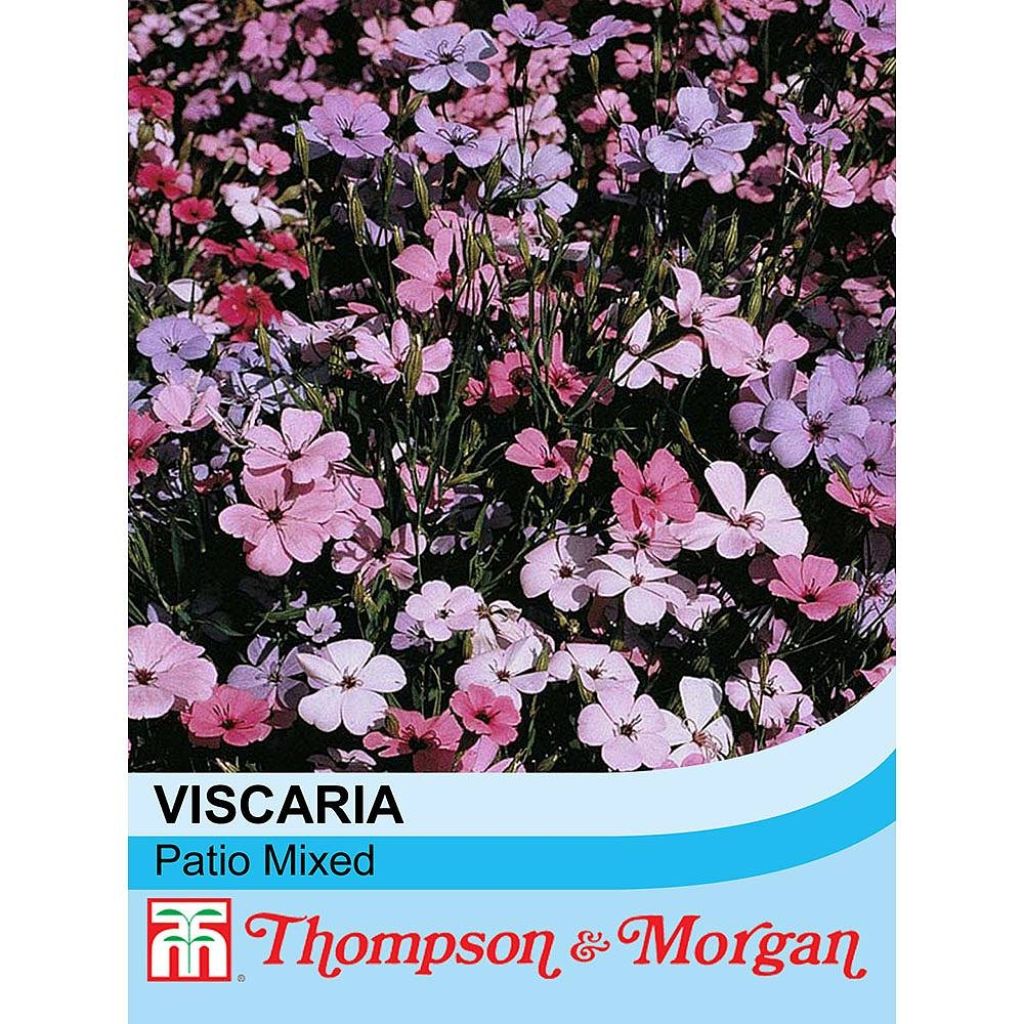

Viscaria occulata Patio Mixed Seeds
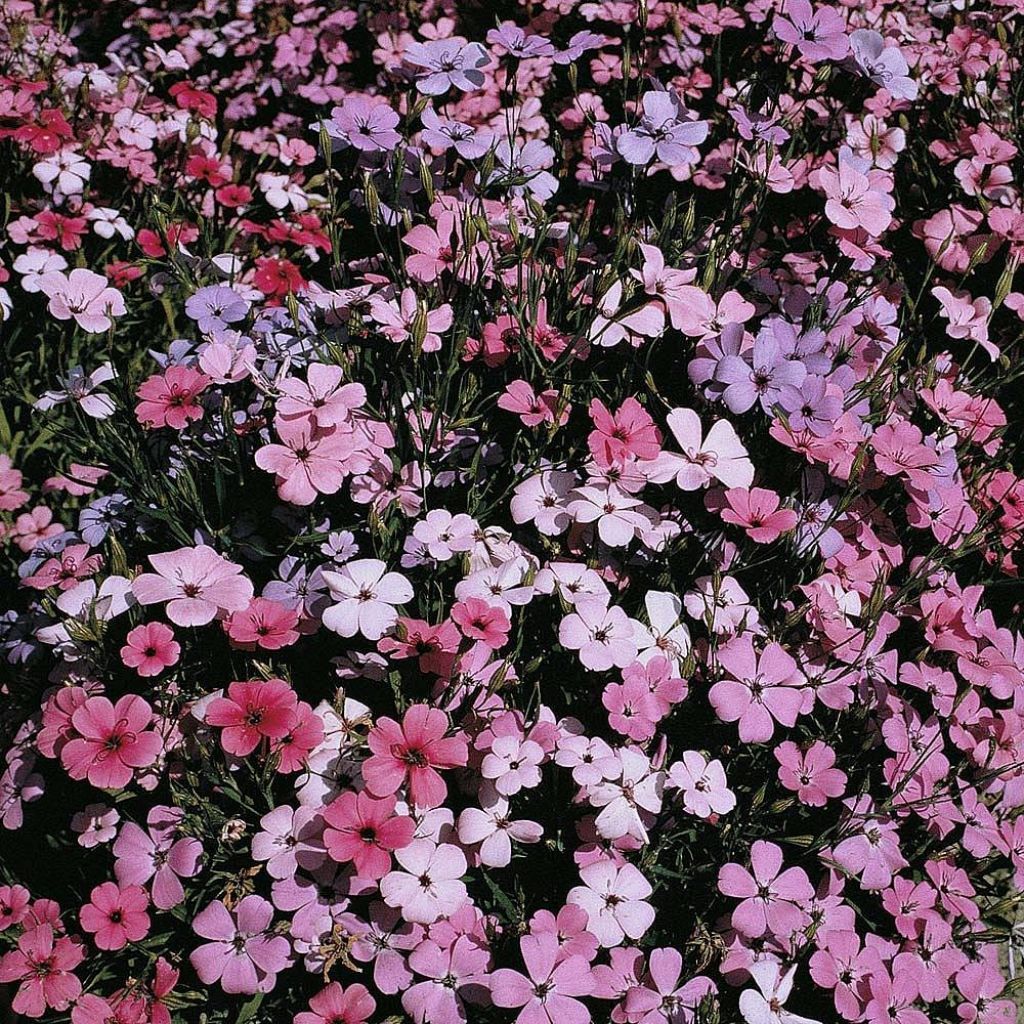

Viscaria occulata Patio Mixed Seeds
Viscaria occulata Patio Mixed Seeds
Viscaria oculata Patio mixed
Rose of Heaven
Special offer!
Receive a €20 voucher for any order over €90 (excluding delivery costs, credit notes, and plastic-free options)!
1- Add your favorite plants to your cart.
2- Once you have reached €90, confirm your order (you can even choose the delivery date!).
3- As soon as your order is shipped, you will receive an email containing your voucher code, valid for 3 months (90 days).
Your voucher is unique and can only be used once, for any order with a minimum value of €20, excluding delivery costs.
Can be combined with other current offers, non-divisible and non-refundable.
Why not try an alternative variety in stock?
View all →This plant carries a 6 months recovery warranty
More information
We guarantee the quality of our plants for a full growing cycle, and will replace at our expense any plant that fails to recover under normal climatic and planting conditions.
Would this plant suit my garden?
Set up your Plantfit profile →
Description
The Viscaria occulata of the 'Patio Mixed' selection are small, poetic annuals that are great for filling out the sunny areas of the garden. Just imagine hundreds of small, delicate flowers in a combination of different shades of white, pink, blue and red, forming a multicoloured ocean that ripples in the slightest breeze. Sow them directly in their final positions, in spring, in well-drained soil. They will bloom all summer in rock gardens and borders. They can also be planted in containers to decorate the terrace or balcony.
Viscaria occulata (synonyms Eudianthe coelirosa or Agrostemma coelirosa) is an annual plant of the family Caryophyllaceae and is related to carnations. It is found in France growing spontaneously in Mediterranean lawns, among grasses, particularly near the coastline of the departments Var and Bouches-du-Rhône. It is a great plant for full sun and sandy or clay, calcareous, well-drained soils.
'Patio Mixed' brings together several forms of compact Viscaria occulata in a variety of colours. These plants display very fast growth, flowering usually occurs 3 months after sowing. In areas with mild winters, Viscaria occulata can be sown in late summer and bloom as early as spring, which occurs in its natural environment. The adult size of these plants when in bloom, will not exceed 30 cm in height and a width of 25 cm. Each one forms a small, upright clump whose slender stems are covered with thin, slightly greyish-green leaves. Flowering takes place from March-April to August, depending on the date of sowing, and is spread over a period of about 2 months. Numerous, small, single flowers bloom at the top of the stems, displaying 5 petals whose colour varies from one plant to the next: they are white, sky blue, soft pink or almost red. Most of them display a contrasting, darker centre. The flowers are followed by fruits containing many fine seeds that self-seed spontaneously in light soil.
Plant Viscaria oculata 'Patio Mixed' in an open space, in a border, a rock garden or in a lower-lying perennial bed among other plants. If the winter is mild in your area, you can also sow them at the end of the summer among the spring flowering bulbs, as English gardeners do: they will flower at the same time as hyacinths, daffodils and rush daffodils. They will also look wonderful on a well-drained slope, in the company of small ornamental grasses such as Stipa, or at the top of a dry stone wall. These plants can decorate the edges of large container displays or big tubs. Before planting in heavy or clay soil, dig in a few shovels of gravel and coarse sand to improve drainage. Viscaria goes very well with plants for dry soils, such as rock soapwort (Saponaria ocymioides), moss or tufted phlox (P. subulata and P. douglasii), Aubrieta, candytuft and sunroses.
Report an error about the product description
Flowering
Foliage
Plant habit
Botanical data
Viscaria
oculata
Patio mixed
Caryophyllaceae
Rose of Heaven
Mediterranean
Other Dianthus seeds
View all →Planting and care
Sowing:
Sow Viscaria occulata outdoors from April to May, directly in their final positions, in order for them to bloom in July-August. In mild climates you can sow in September-October for blooming to start in early spring. Prepare the ground well and remove any weeds. If necessary improve it with compost, sand and gravel before sowing. Sow at a depth of 3 mm, in rows spaced 30 cm apart. Germination usually takes about 21 days.
When they are large enough to be handled, thin out seedlings to 15 cm apart.
Cultivation:
Plant Viscaria occulata in ordinary, permeable, stony, sandy, moist, preferably neutral to calcareous soil that is above all, well-drained. Soil with high gravel content provides good results. This plant requires very sunny positions. Water in case of prolonged drought. In light soil, Viscaria occulata self-seeds abundantly if some fruits are left to ripen. This annual plant does not like competing for light with more overbearing plants which when planted to close, will make them disappear from lack of light. Just as easy to naturalize as love-in-a-mist, it adapts to the climate in our regions with hot and dry summers, taking advantage of the moist soil in autumn to germinate, of the mild winter season to grow and of spring to bloom. Further north, in cooler climates with more humid summers, sow in spring in order to obtain blooms in summer before the plants disappear.
Sowing period
Intended location
This item has not been reviewed yet - be the first to leave a review about it.
Similar products
Haven't found what you were looking for?
Hardiness is the lowest winter temperature a plant can endure without suffering serious damage or even dying. However, hardiness is affected by location (a sheltered area, such as a patio), protection (winter cover) and soil type (hardiness is improved by well-drained soil).

Photo Sharing Terms & Conditions
In order to encourage gardeners to interact and share their experiences, Promesse de fleurs offers various media enabling content to be uploaded onto its Site - in particular via the ‘Photo sharing’ module.
The User agrees to refrain from:
- Posting any content that is illegal, prejudicial, insulting, racist, inciteful to hatred, revisionist, contrary to public decency, that infringes on privacy or on the privacy rights of third parties, in particular the publicity rights of persons and goods, intellectual property rights, or the right to privacy.
- Submitting content on behalf of a third party;
- Impersonate the identity of a third party and/or publish any personal information about a third party;
In general, the User undertakes to refrain from any unethical behaviour.
All Content (in particular text, comments, files, images, photos, videos, creative works, etc.), which may be subject to property or intellectual property rights, image or other private rights, shall remain the property of the User, subject to the limited rights granted by the terms of the licence granted by Promesse de fleurs as stated below. Users are at liberty to publish or not to publish such Content on the Site, notably via the ‘Photo Sharing’ facility, and accept that this Content shall be made public and freely accessible, notably on the Internet.
Users further acknowledge, undertake to have ,and guarantee that they hold all necessary rights and permissions to publish such material on the Site, in particular with regard to the legislation in force pertaining to any privacy, property, intellectual property, image, or contractual rights, or rights of any other nature. By publishing such Content on the Site, Users acknowledge accepting full liability as publishers of the Content within the meaning of the law, and grant Promesse de fleurs, free of charge, an inclusive, worldwide licence for the said Content for the entire duration of its publication, including all reproduction, representation, up/downloading, displaying, performing, transmission, and storage rights.
Users also grant permission for their name to be linked to the Content and accept that this link may not always be made available.
By engaging in posting material, Users consent to their Content becoming automatically accessible on the Internet, in particular on other sites and/or blogs and/or web pages of the Promesse de fleurs site, including in particular social pages and the Promesse de fleurs catalogue.
Users may secure the removal of entrusted content free of charge by issuing a simple request via our contact form.
The flowering period indicated on our website applies to countries and regions located in USDA zone 8 (France, the United Kingdom, Ireland, the Netherlands, etc.)
It will vary according to where you live:
- In zones 9 to 10 (Italy, Spain, Greece, etc.), flowering will occur about 2 to 4 weeks earlier.
- In zones 6 to 7 (Germany, Poland, Slovenia, and lower mountainous regions), flowering will be delayed by 2 to 3 weeks.
- In zone 5 (Central Europe, Scandinavia), blooming will be delayed by 3 to 5 weeks.
In temperate climates, pruning of spring-flowering shrubs (forsythia, spireas, etc.) should be done just after flowering.
Pruning of summer-flowering shrubs (Indian Lilac, Perovskia, etc.) can be done in winter or spring.
In cold regions as well as with frost-sensitive plants, avoid pruning too early when severe frosts may still occur.
The planting period indicated on our website applies to countries and regions located in USDA zone 8 (France, United Kingdom, Ireland, Netherlands).
It will vary according to where you live:
- In Mediterranean zones (Marseille, Madrid, Milan, etc.), autumn and winter are the best planting periods.
- In continental zones (Strasbourg, Munich, Vienna, etc.), delay planting by 2 to 3 weeks in spring and bring it forward by 2 to 4 weeks in autumn.
- In mountainous regions (the Alps, Pyrenees, Carpathians, etc.), it is best to plant in late spring (May-June) or late summer (August-September).
The harvesting period indicated on our website applies to countries and regions in USDA zone 8 (France, England, Ireland, the Netherlands).
In colder areas (Scandinavia, Poland, Austria...) fruit and vegetable harvests are likely to be delayed by 3-4 weeks.
In warmer areas (Italy, Spain, Greece, etc.), harvesting will probably take place earlier, depending on weather conditions.
The sowing periods indicated on our website apply to countries and regions within USDA Zone 8 (France, UK, Ireland, Netherlands).
In colder areas (Scandinavia, Poland, Austria...), delay any outdoor sowing by 3-4 weeks, or sow under glass.
In warmer climes (Italy, Spain, Greece, etc.), bring outdoor sowing forward by a few weeks.






























